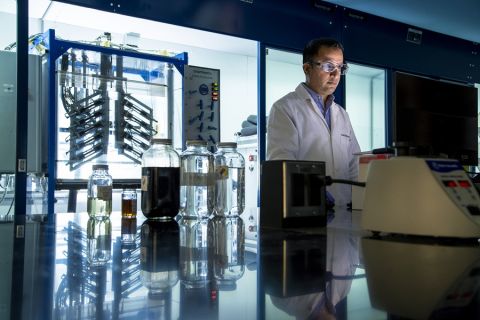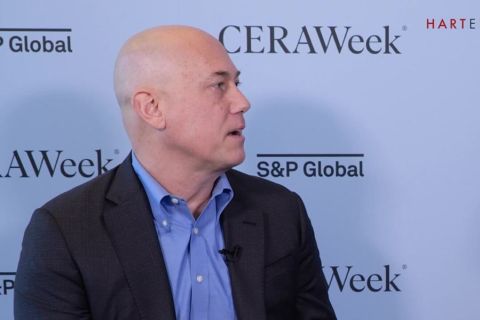
(Source: Shutterstock.com)
RIO DE JANEIRO—In order to attract oil companies to areas outside prolific presalt fields, the Brazilian government is working to open other exploration segments with its Permanent Offer bidding program.
Launched by the Brazil Mines and Energy Ministry, the program aims to attract contracting concessionaires to explore, revitalize and produce oil and natural gas in Brazil.
“We intend to provide the continuous supply of returned fields [or in the process of being returned], exploratory blocks offered in previous rounds and not sold, as well as blocks returned to the ANP,” ANP said in an emailed statement.
According to the regulator, companies must present a declaration of interest in a block or area along with a bid guarantee. Once one or more declarations of interest have been submitted and all documentation has been approved, the ANP’s Special Bidding Committee publishes a schedule for a bidding cycle.
The permanent offer program covers 600 exploratory blocks, of which 527 are located in onshore basins. This includes 10 Brazilian sedimentary basins covering a total of more than 191 million sq km. The onshore blocks are located in the Espírito Santo, Potiguar, Recôncavo, Sergipe-Alagoas, Paraná, Parnaíba and Tucano basins.
Offshore, the ANP is auctioning blocks in the Campos, Santos, Sergipe-Alagoas, Ceará and Potiguar basins.
The first cycle opened on June 26 and public hearings for the presentation of bids is scheduled for Sept. 9. More than 45 registered companies have already shown interest in blocks to be offered.
Minimum bonuses of the areas on offer range from R$50,000 to R$69.5 million (about US$12,610 to $17.5 million), depending on each area’s characteristics.
BP, Royal Dutch Shell, Exxon Mobil Corp., Petrobras, Karoon, Murphy, Repsol, Wintershall, Rosneft and CNOOC are among the oil companies approved to bid on areas offered by ANP.
“This is a great opportunity for the onshore industry and I believe we have the potential to replicate opportunities like the Parnaíba Basin, which today is a success story in Brazil's onshore E&P environment,” said Clarisse Rocha, head of Americas for the Energy Industries Council. “In addition, among the areas offered, I believe there are opportunities in the enhanced oil recovery (EOR) segment that can drive the development of new technologies, as happened in the U.K.”
An advantage of this form of bidding over others is that there is no fixed calendar, according to Rocha.
“Companies have a longer timeframe to evaluate the areas offered, which gives them more time to examine whether a manifestation of interest is feasible,” she said.
Plus, the areas are permanently on offer, unlike other rounds in which there are only one public bidding session.
According to the ANP, with this model, the company has more time to study available areas and evaluate the feasibility and relevance of making the investments.
Also, the Permanent Offer bidding program makes it easier for companies to acquire acreage near their existing concessions, improving logistics and economics.
It also enables the company to choose the best time to make the offering, according to its financial capacity and business strategy, according to the ANP.
The regulator believes that the Permanent Offer bidding program may help develop a diverse, dynamic and competitive sector in the different exploratory environments in the country. “The chosen blocks serve companies of different profiles and sizes and the offer of areas in mature basins offers opportunities to small and medium enterprises and enables the continuity of activities where they play an important socioeconomic role,” ANP said in a statement.
Interest shown by the more than 40 registered companies is evidence of the permanent offer program’s attractiveness, according to Rocha.
“Brazil’s oil and gas industry is not limited to presalt and can generate opportunities in smaller segments,” she said. “In addition to the large traditional players such as Petrobras, BP, Exxon Mobil and Shell, we also have smaller players such as Enauta, Eneva, Karoon and PetroRio as well as a wide range of onshore players. It is a great opportunity for the acquisition of new areas and portfolio expansion.”
Recommended Reading
Defeating the ‘Four Horsemen’ of Flow Assurance
2024-04-18 - Service companies combine processes and techniques to mitigate the impact of paraffin, asphaltenes, hydrates and scale on production—and keep the cash flowing.
Tech Trends: AI Increasing Data Center Demand for Energy
2024-04-16 - In this month’s Tech Trends, new technologies equipped with artificial intelligence take the forefront, as they assist with safety and seismic fault detection. Also, independent contractor Stena Drilling begins upgrades for their Evolution drillship.
AVEVA: Immersive Tech, Augmented Reality and What’s New in the Cloud
2024-04-15 - Rob McGreevy, AVEVA’s chief product officer, talks about technology advancements that give employees on the job training without any of the risks.
Lift-off: How AI is Boosting Field and Employee Productivity
2024-04-12 - From data extraction to well optimization, the oil and gas industry embraces AI.
AI Poised to Break Out of its Oilfield Niche
2024-04-11 - At the AI in Oil & Gas Conference in Houston, experts talked up the benefits artificial intelligence can provide to the downstream, midstream and upstream sectors, while assuring the audience humans will still run the show.





